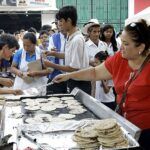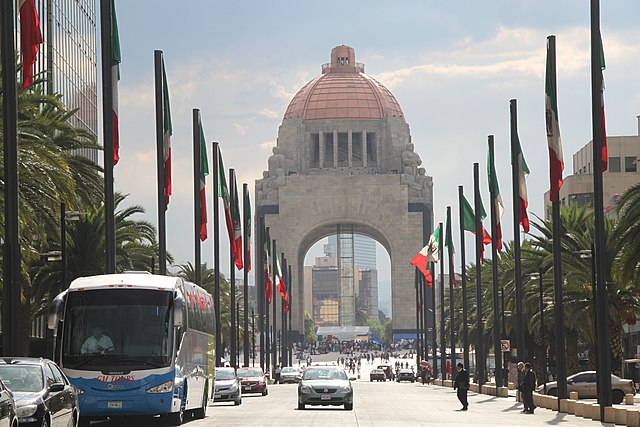The COVID-19 pandemic has had far-reaching consequences across Latin America, and El Salvador is no exception. In this context, various co-governance arrangements have played a significant role in shaping the outcomes of COVID-19 support programs for micro, small, and medium-sized enterprises (MSMEs). From a liberal perspective, it is crucial to analyze these arrangements and understand their implications for governance, economic freedom, and individual agency.
In El Salvador, the government implemented programmatic governance measures to support MSMEs by distributing aid based on formal and public criteria. The aim was to ensure the survival of these businesses during the crisis. However, the government also engaged in contingent distribution, capitalizing on pre-existing clientelist ties between President Bukele and street vendors. This approach had explicit and implicit expectations that providing support would strengthen Bukele’s position vis-à-vis the congress. Consequently, co-governance in El Salvador was influenced by a combination of top-down programmatic governance and bottom-up dynamics driven by voluntary and criminal organizations.
The involvement of voluntary and criminal organizations in co-governance arrangements introduced hybrid practices and informal linkages. These practices blurred the boundaries between formal and informal governance, highlighting the complexity of the situation. Within this dynamic, MSMEs found themselves in a vulnerable position, acting as both agents and subjects of governance. They had some influence over how government and non-government actors appealed to them, but were also highly susceptible to the actions of more powerful and organized groups.
The COVID-19 support provided by the Bukele government affected the relationships among different actors involved in co-governance arrangements. For example, in the Historical Center of San Salvador, COVID-19 support became a crucial resource in the contingent governance of street vendors. Vendor associations emerged as powerful intermediaries due to individual street vendors’ limited capacity to meet governmental requirements. In contrast, the transport sector did not experience a similar shift in power dynamics. Support schemes did not provide non-state actors, such as gangs and business associations, with an opportunity to assert themselves. Individual transport companies were able to comply with governmental requirements independently, without relying on collective action.
The State had reasons to prevent cohesive governance from below in the transport sector, as it could have posed a political challenge to the Bukele government. Although support schemes injected resources into the sector, compensating for pandemic-related losses, they did not lead to a more cohesive form of governance from below.
These case studies demonstrate the complexity of co-governance arrangements in hybrid orders and their interaction with the economic and political interests of state and non-state actors. Moreover, they highlight the emergence of distinct varieties of co-governance resulting from different governance approaches. For instance, the transport sector witnessed fractured co-governance, characterized by the State’s clientelist approach in cooperation with criminal interests. This approach became contentious when the State curtailed transport sector operations during the pandemic. On the other hand, the street vendor case saw the emergence of contingent co-governance, driven by stronger collective action by vendor associations in collaboration with criminal interests. While this resulted in the delivery of support measures, it weakened the State’s leverage and strengthened business associations and gangs at the expense of individual MSMEs.
However, it is important to note that the boundaries between these co-governance varieties can be blurred. They may be dependent on specific issues, subject to change over time, or incorporate elements of multiple varieties. Further research and comparative case studies are needed to develop a deeper understanding of co-governance dynamics and verify these findings.
The shifting dynamics of co-governance in the aftermath of the pandemic raise important questions about their long-term effects on democratic governance in Latin America. It is essential to explore how co-governance arrangements in other hybrid democracies have been challenged or strengthened during the pandemic. Additionally, studying the impact of shifting co-governance landscapes on different actors in the private sector and civil society can provide valuable insights. Understanding the political and economic outcomes resulting from these changes is also crucial.
This article has outlined how the pandemic response in El Salvador strengthened the government’s position in co-governance arrangements through the personalized distribution of funds and attempts to weaken voluntary associations and influential individual business owners. This occurred concurrently with a weakening of formal institutions and organized political opposition, justified by the need to combat criminal organizations. The pandemic and its micropolitics appear to have contributed to a renegotiation of co-governance arrangements with lasting impacts. These include the continuation or exacerbation of weak formal institutions, the strengthening of clientelism, and the establishment of parallel and fractured co-governance arrangements. These developments have resulted in sustained hardship for thousands of small businesses in El Salvador and across Latin America.
As we reflect on the implications of these findings, it is clear that a liberal perspective emphasizes the importance of robust institutions, respect for individual rights, and the rule of law. The complex interplay between state and non-state actors in co-governance arrangements requires careful consideration to strike a balance between government intervention and individual agency. By fostering an environment of economic freedom, ensuring transparency in decision-making processes, and promoting the rule of law, countries can create an atmosphere conducive to sustainable economic development, individual empowerment, and democratic governance.
In conclusion, the COVID-19 pandemic has significantly impacted co-governance arrangements in El Salvador. This analysis from a liberal perspective has shed light on the dynamics between state and non-state actors, the influence of personalized governance, and the consequences for economic freedom and individual agency. The findings highlight the need for further research and comparative studies to deepen our understanding of co-governance dynamics and their long-term effects on democratic governance. By upholding the principles of liberal governance, nations can strive towards a balance between government intervention and individual freedom, promoting sustainable development and prosperity for all.










